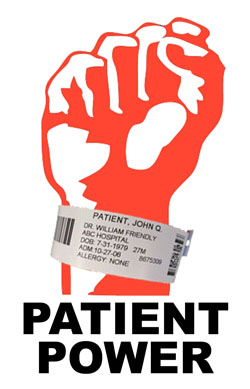The Power of Patient Input How FDA Learned to Love & Approve Addyi Patients are beginning to play a much bigger role in all aspects of the pharmaceutical enterprise from drug discovery to clinical trials to FDA approval to post-approval marketing. Sanofi, for example, utilizes patients’ input to get a better sense of their needs, so it can design and deliver solutions that help fulfill those needs.
Patients are beginning to play a much bigger role in all aspects of the pharmaceutical enterprise from drug discovery to clinical trials to FDA approval to post-approval marketing. Sanofi, for example, utilizes patients’ input to get a better sense of their needs, so it can design and deliver solutions that help fulfill those needs.
But there is another side to patient-centricity: fulfilling the needs of pharma companies to get drugs approved. “We have heard from pharma and bio that — and they’re using the term ‘science of patient input’ — is one of the most important items of discussion for the reauthorization of PDUFA [the Prescription Drug User Fee Act],” said Theresa Mullin, director of the Office of Strategic Programs at the FDA Center for Drug Evaluation and Research. “They’re identifying this as a high-priority area.”
This article presents a case study of how patient input has the power to change the course of drug approval. The case is Sprout’s ground-breaking patient campaign that played a major role in getting Addyi, a female sexual dysfunction drug, approved by the FDA.
Topics (partial list):
- Respecting the Patient Perspective – Novartis Declaration
- The Science of Patient Input
- Sprout’s Ground-breaking Patient Campaign
- A Stacked Deck
- CME Works in Tandem with Patient Power
- DTC Advertising & Spousal Influence
- Will Patient Power Fail?
- Chart: Patient Centricity is Best Route to Profitability
- Chart: The Pharma-Developed, Patient-Powered Self-Assessment Questionnaire that Got Addyi Approved
Download the full article (PDF file) here:
www.pharma-mkting.com/news/pmnews1406-article03.pdf
Addyi + Alcohol = 1 Death So Far. FDA Not Concerned.
PMN1406-03
Issue: Vol. 14, No. 6: September 2015



![6 Digital Tools at the Center of Healthcare Digitalization [INFOGRAPHIC]](http://ec2-54-175-84-28.compute-1.amazonaws.com/pharma-mkting.com/wp-content/uploads/2021/04/6DigitalTools_600px-218x150.jpg)




![6 Digital Tools at the Center of Healthcare Digitalization [INFOGRAPHIC]](http://ec2-54-175-84-28.compute-1.amazonaws.com/pharma-mkting.com/wp-content/uploads/2021/04/6DigitalTools_600px-100x70.jpg)




